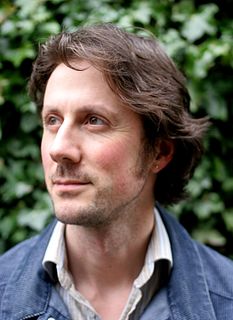Top 15 Quotes & Sayings by Paul Kingsnorth
Explore popular quotes and sayings by an English writer Paul Kingsnorth.
Last updated on April 21, 2025.
?here's no doubt at all that the Norman conquest led to the hugely concentrated land ownership patterns that we still see in Britain today. Some of Britain's biggest landowners are still direct descendants of Norman barons. And given the impact that Britain has had on the world over the past few hundred years, you could perhaps say this was a global issue. History is always with us.
What does interest me is how difficult my culture seems to find it to look the dark side of life directly in the eye. It seems to me that if we look back at mediaeval culture, for example, we see a society which faces the reality of death and pain and limitation, because it has to. Our society, which is progressive and technological and seems to have a slightly fanatical utopian edge to it, gets very uncomfortable when anybody highlights the dark side of humanity, or the world we have built, or what we are doing to the rest of life on Earth.






















